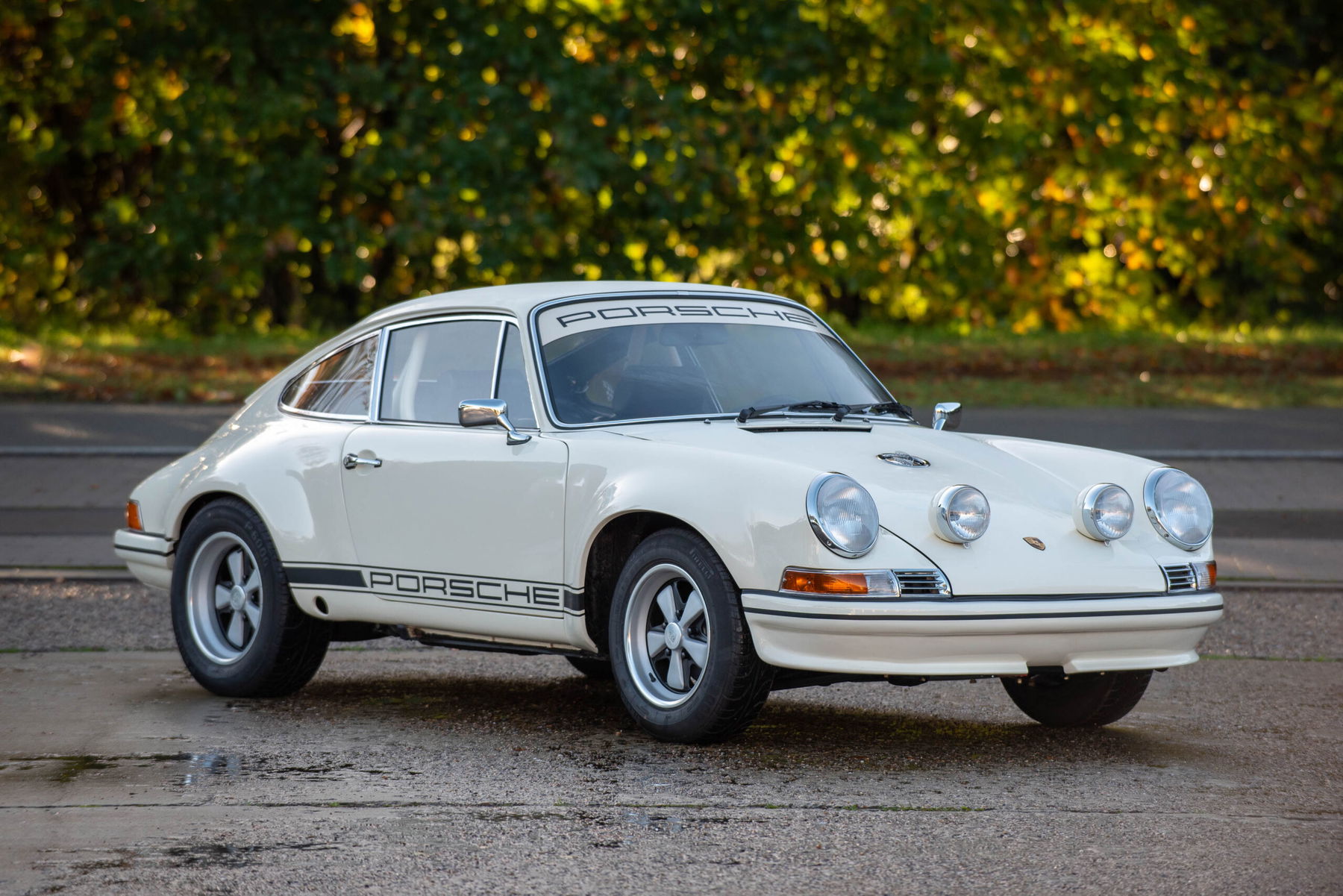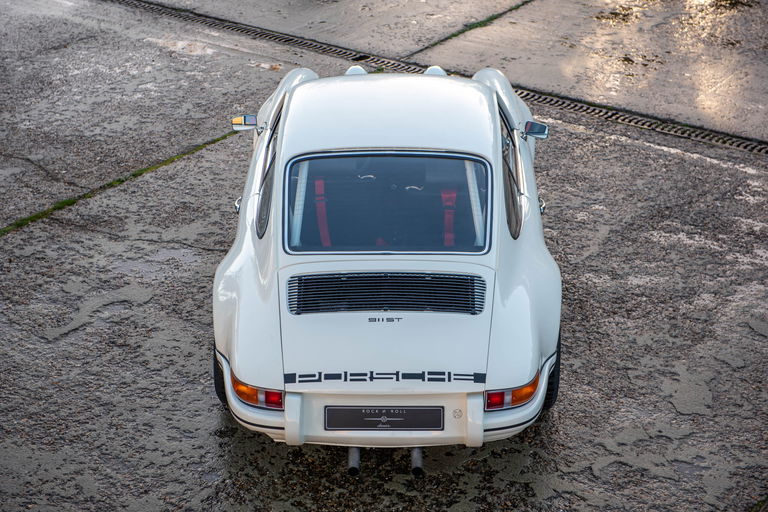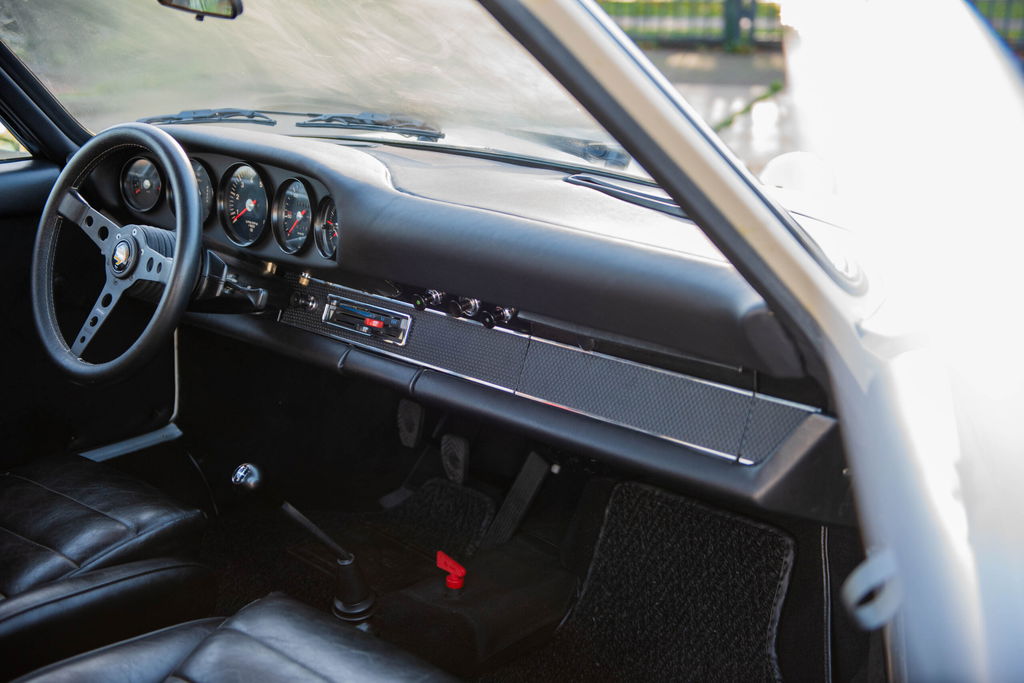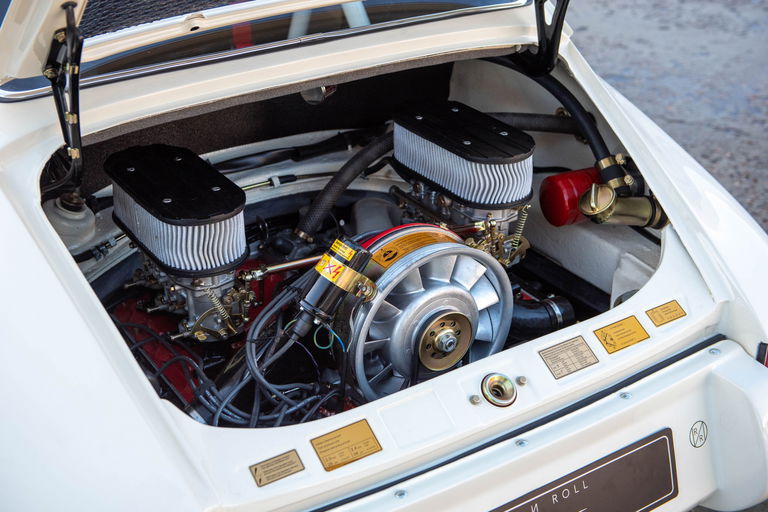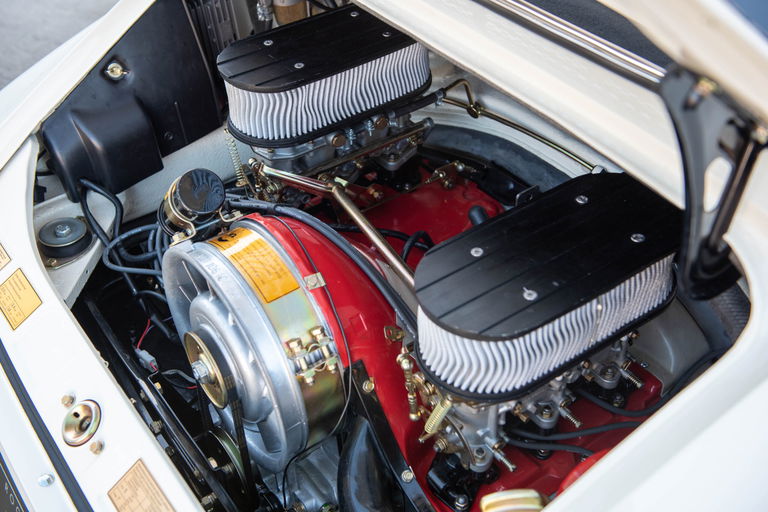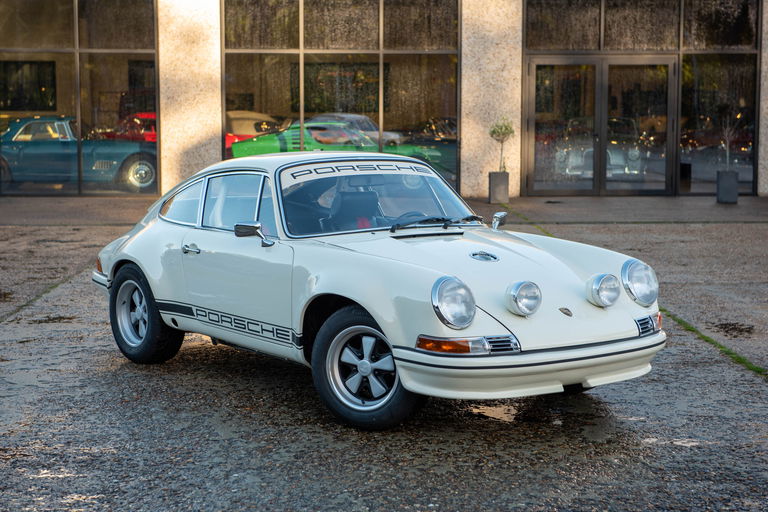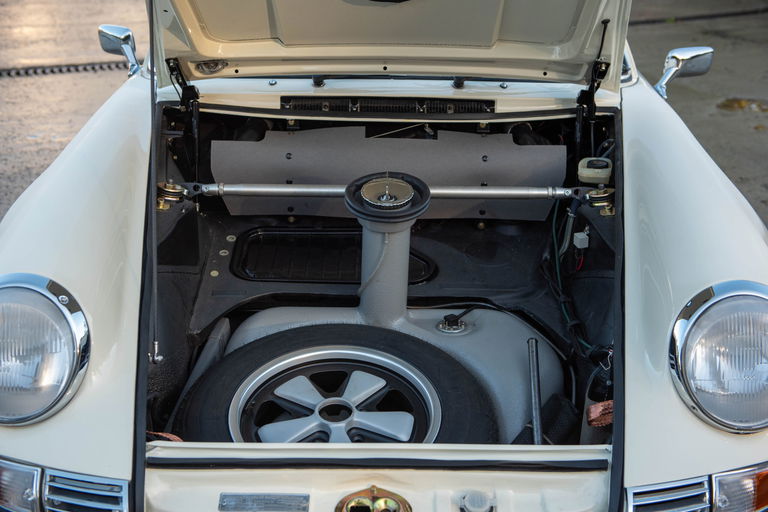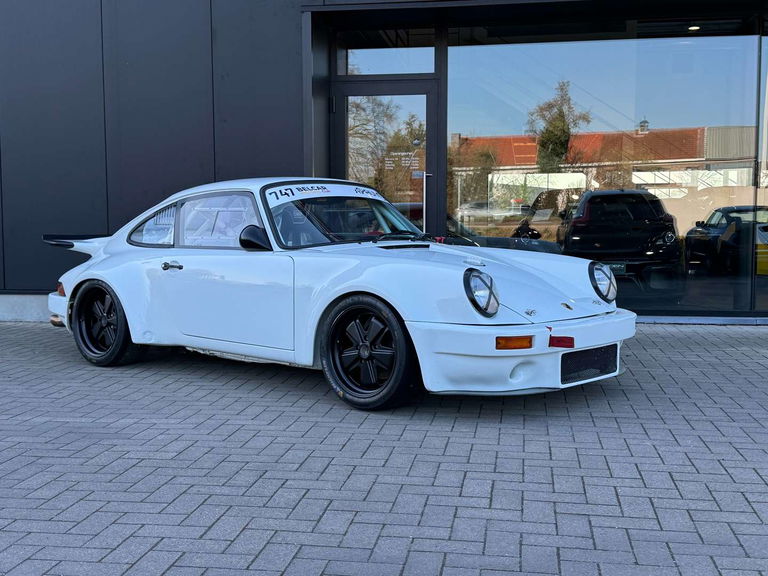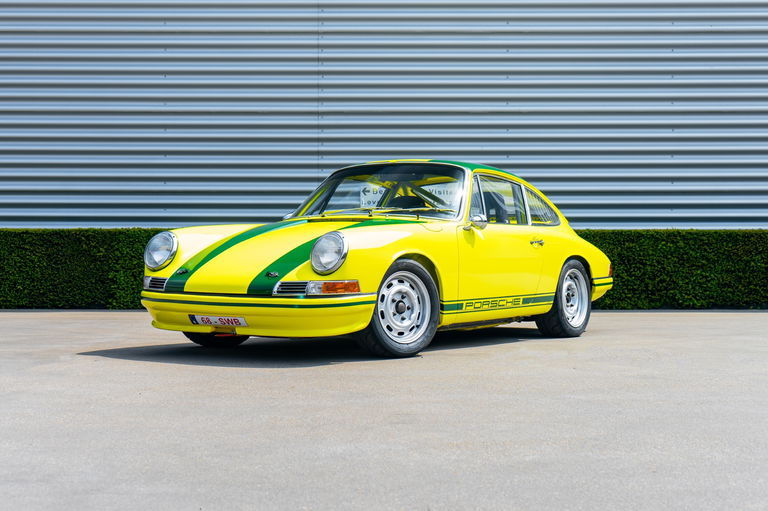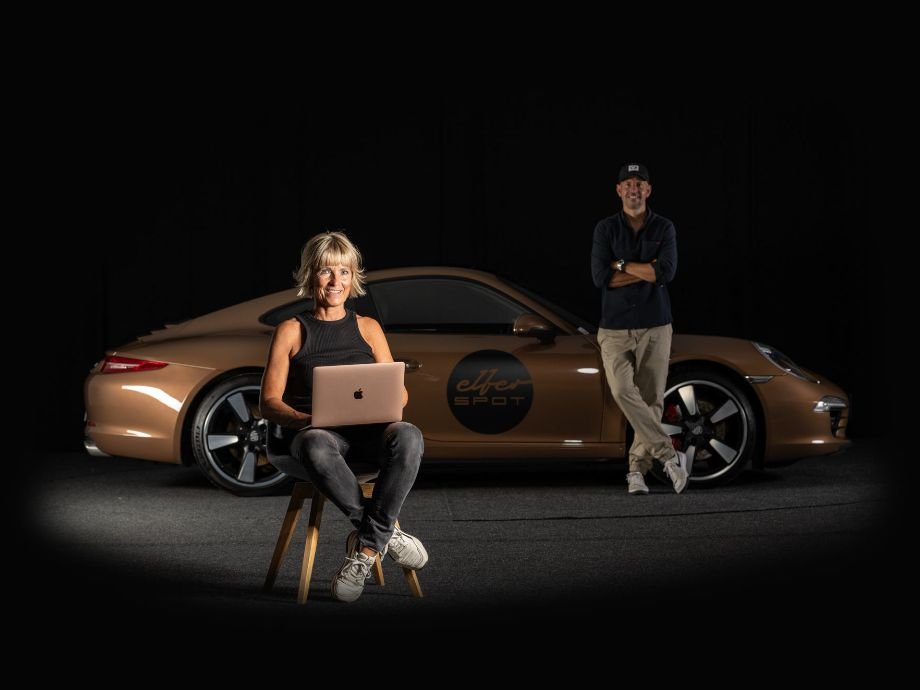Under the hood is the matching numbers “flat six,” equipped with S camshafts and (oversized) S pistons. The original displacement has been increased from 2200CC to 2300cc. In addition, the 901 5-speed transmission has been completely overhauled, and a new oil pump provides reliable lubrication. Zenith carburetors with open air filters take performance to the next level. Furthermore, the front and rear fenders have been modified to ST-style polyester fenders. A subtle but functional addition is the filler cap on the fuel tank in the trunk. As a finishing touch, Cibie high beams were also mounted on the hood.
Inside, no detail has been overlooked. A sturdy and inspection-correct roll cage is mounted, equipped with mountings for 4-point seat belts. The steering wheel has been replaced with a leather MOMO sports steering wheel, while time-correct Recaro seats and lightweight door panels complete the interior.
This unique restoration process has been captured in detail through a comprehensive series of photos depicting each phase of the restoration. In addition, all accompanying invoices were also preserved.
Driving this car spontaneously conjures a smile on your face. The sheer power, good handling and beautiful sound make every drive an unforgettable experience.
Now available at Rock ‘N Roll Classics!
As soon as the Porsche 911 rolled off the production line, the focus was immediately on racing. Porsche soon began developing racing modifications for the 911, both for factory teams and for private drivers. The first special racing model was the 1967 911 R, a lightweight car with a fiberglass body that was built in very limited numbers. The S/T, however, tells a slightly different story.
According to famed Porsche driver Jürgen Barth, the name S/T for the 911 racer came from the fact that the model essentially combined the powertrain of the 911 S with the lighter package of the base version of the 911 T. Production of the 911 ST lasted from 1970 to 1971. About thirty-six were built with the lightweight body and configuration. Because they were built to customer specifications, each one is unique.
Continue reading
